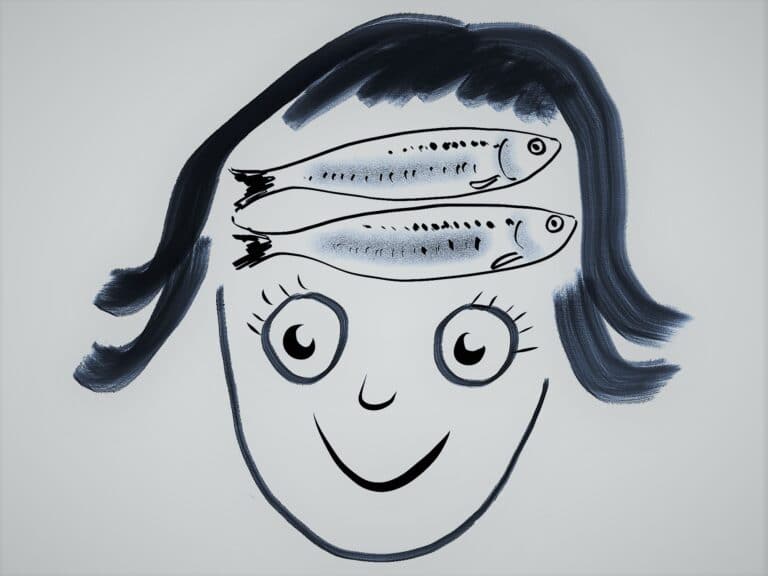
How Going Gluten-Free Transformed our Home
Hi, I’m Melissa, Beth asked me to explain how going gluten-free made a difference in our household. I have a

I’d read studies that suggested fish oil Omega 3 supplementation could improve focus and attention, so I thought it was worth a try. Harry couldn’t swallow capsules, so we gave him the oil in a liquid form mixed with a small amount of orange juice.
We kept him on the fish oil until he was eight. That was when we learned he had ADD. A year earlier, he’d been diagnosed with dyslexia. The exact figure for the percentage of people with dyslexia and ADD isn’t known, but the International Dyslexia Association estimates it is around 30%, although some experts say it is much higher.
Because Harry was so young, I was unhappy treating his ADD with stimulant medication. I discovered our local university was conducting a clinical trial into micronutrients’ effectiveness to control ADD/ADHD in children, and I promptly signed Harry up. However, to take part in the study, he had to stop taking fish oil.
I was right to worry. A week after stopping the fish oil, his teacher telephoned and asked me in for a chat.
You know that call.
His teacher said Harry’s focus had fallen dramatically. He couldn’t stay in his seat, and he’d climbed onto his desk in the middle of a lesson. As an experienced teacher, she appreciated it wasn’t mischief. Instead of punishing him, she’d encouraged him to run around the school field to burn off excess energy. I thanked her, explained the trial, and said that his behaviour might be challenging for a few months.
Ever since I have had no doubt taking fish oil capsules makes a big difference to Harry’s attention and focus.
Researchers on the micronutrient trial split the participants into two groups. One group of children received placebos (fake pills) for six weeks, while the others received micronutrients.
For six weeks, Harry bounced off the walls at school and home. He learned nothing except how to improve his lap time around the field. His behaviour was so bad I was sure he was on the placebo, but to keep the trial robust, the researchers couldn’t tell me. After six weeks, they confirmed he was on the placebo and put him on the micronutrients. To find out more about the trial results, click here. After the trial, Harry continued on the micronutrients and resumed taking fish oil. Find out more about which supplements Harry takes here.
There are three types of essential fatty acids:
EPA (Eicosapentaenoic Acid) = Functional fatty acid.
DHA (Docosahexaenoic Acid) = Structural fatty acid.
You find EPA and DHA in oily fish such as mackerel and salmon.
ALA (Alpha-linolenic acid) = a vitamin-like chemical called an antioxidant.
You find ALA in some green vegetables (such as Brussels sprouts, spinach, and kale), vegetable oils (such as canola or soybean), nuts (such as walnuts), and seeds (such as flaxseeds and pumpkin seeds). The body converts ALA into EPA or DHA to use it, but only a fraction is converted.
Having watched the Netflix documentary Seaspiracy, I would prefer Harry got his essential fatty acids from plant-based algae sources. However, because he’s been taking Equazen Eye Q fish oil for so many years, I’m nervous about switching him at this point. Equazen is a well-researched brain formulation of Omega-3 fatty acids. If you use another brand, ensure it is higher in EPA than DHA. I’d love to hear from you if you’ve had success with plant-based essential fatty acid supplements. mailto:hello@dyslexiaoctopus.com
The Dyslexia Research Institute has identified chromosome 18 plays a part in dyslexia, and this chromosome is also implicated in an inability to metabolise fatty acids.
“Like many genes, it (Chromosome 18) is involved in a large number of seemingly different functions: pigmentation, reactions to stress, energy balance and obesity and possibly in the metabolism of omega-3 fatty acids. This allele may make dyslexics particularly vulnerable to dietary deficiency of omega 3 fatty acids that are found only in fish oils. Remarkably, therefore, simply consuming more fish oil can often help children to greatly improve their reading, probably because this makes their magnocellular neurones work better.” (Dyslexia Research Institute, n.d.)
Alexandra J. Richardson’s paper, Fatty Acids in Dyslexia, Dyspraxia and ADHD. Can Nutrition Help? is also worth reading.
The jury is out on this. You can find studies showing no improvement and others showing change, but I believe the ability to focus is essential to learn to read. When Harry couldn’t sit still, he didn’t learn anything, let alone his letters.
A 2002 study concluded, “supplementation appears to offer significant benefit in alleviating many ADHD-related symptoms in children with specific learning difficulties (dyslexia).”
This 2019 study in Oman suggested DHA enriched fish oil ‘significantly improved executive functioning in children.
What the heck?
Sure, girls may benefit from taking fish oil. However, one compelling study which looked at the link between fatty acid deficiency and severity of dyslexia found that boys showed higher levels of dyslexia if they were deficient in fatty acids. (Richardson et al., 2000)
I’ve mentioned high-quality fish oil to several friends with dyslexic children, but they worry about the cost and ask, “Can I pick up a bulk pack online?”
Everyday fish oils are cheap, but it is essential to understand a brain formulation needs specific levels of EPA and DHA.
There are a few brain formulation fish oils around. We use Equazen, which is backed by research. The company recommends taking six capsules per day for twelve weeks to build up the fatty acid stores. After this, drop the daily dose to two capsules.
My sister-in-law also has problems with focus and concentration. I sent her the Equazen web link and suggested she give the capsules a try. I explained she would need to take six a day for twelve weeks before reducing to two capsules daily.
Struggling to follow instructions, she took twelve capsules a day! After two weeks, she called to say her breasts had enlarged. When I discovered how many she was taking, I told her to reduce the dose immediately.
Who knew excessive fish oil was like having a boob job! I’m not recommending such a high dose, but I had to laugh.

Hi, I’m Beth. Seven years ago, when I discovered my son had dyslexia, I had a ‘light-bulb’ moment and understood this explained many of my own difficulties. Ever since, I’ve been on a mission to discover the best ways to wrestle what I like to call the dyslexia octopus.

Hi, I’m Melissa, Beth asked me to explain how going gluten-free made a difference in our household. I have a

I need nighttime anxiety relief. It’s 4 AM, and I’m reviewing what happened to Harry at school yesterday and wondering